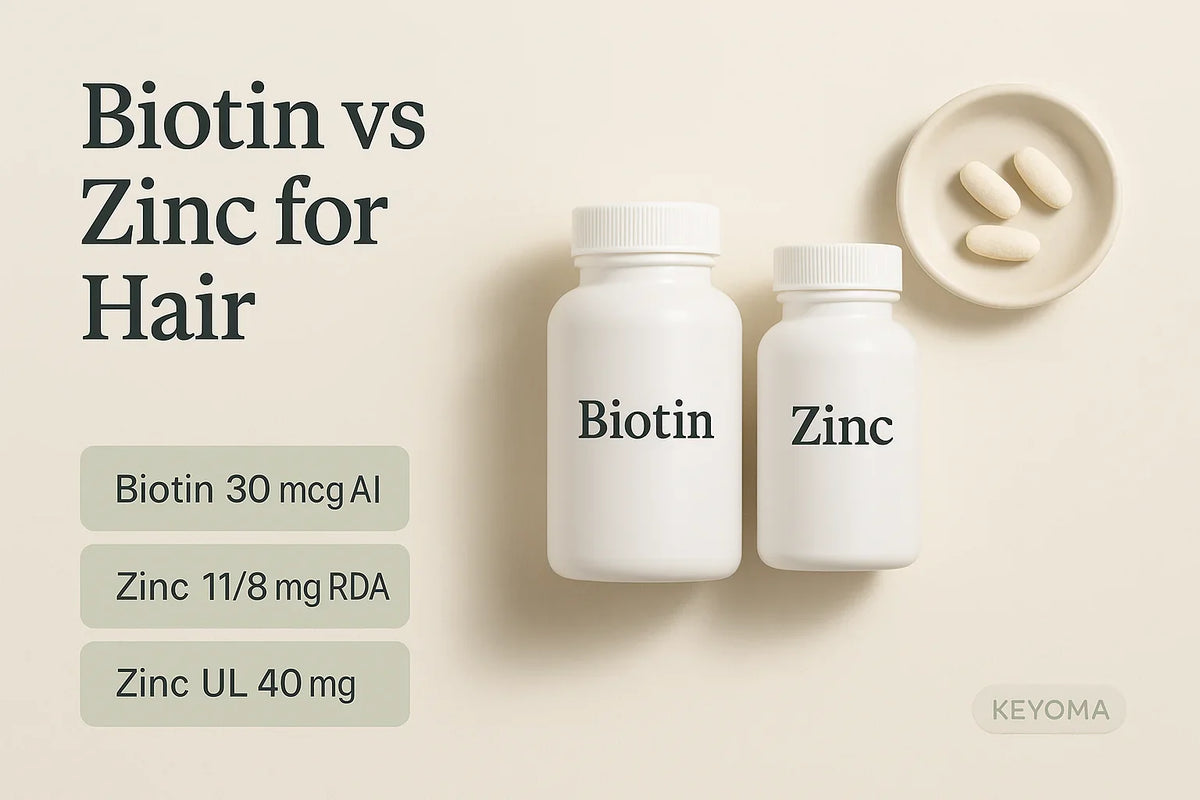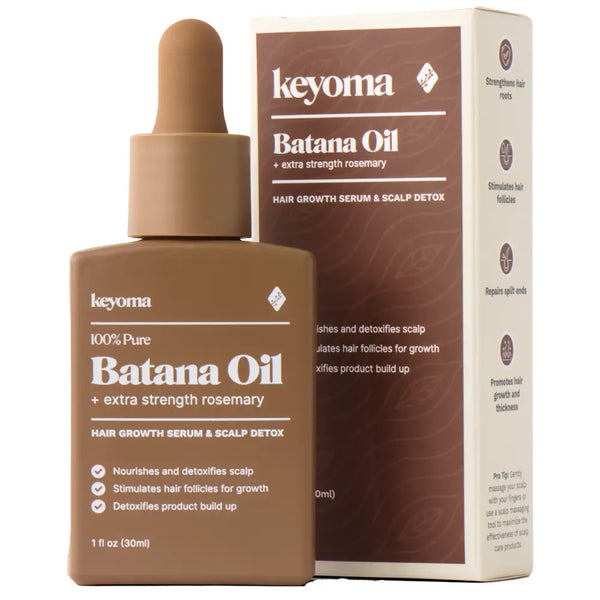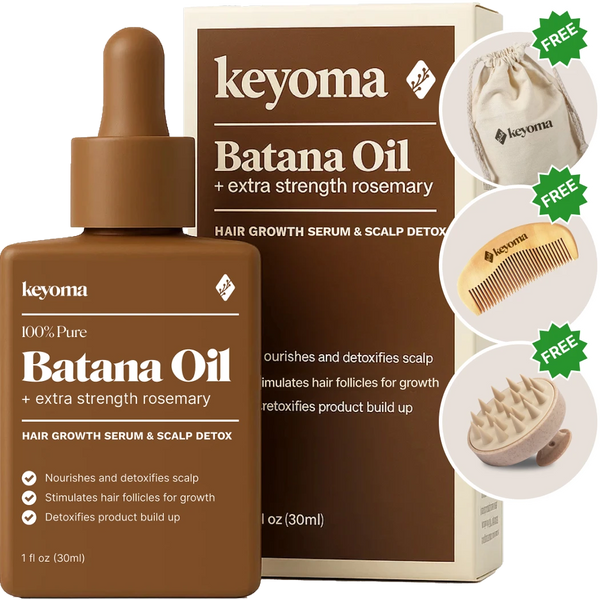Biotin vs. Zinc for Hair Growth: What Works, How Much, and How To Use Them Safely
Published on

In this article
Looking for straightforward answers on biotin and zinc for hair growth? Here you'll see what each nutrient does, when they actually help, the amounts to use, and how to set up a safe routine. You'll also learn when proven treatments outdo supplements and how to avoid delays in results.
Do biotin and zinc help hair grow? Yes. These nutrients back hair health when your body is low in either. If your levels are fine, extra biotin or zinc won't make hair grow faster and may create problems.
Most adults meet their biotin needs through food, and true biotin deficiency is uncommon. Zinc deficiency shows up more often, but you still need testing before you add a supplement. The results come from fixing the cause of hair loss, addressing nutrient gaps, and using proven options like minoxidil if needed.
Key Takeaways
-
Use lab tests to confirm low biotin or zinc before you supplement. Only add them if you're deficient.
-
Biotin 30 mcg (Adequate Intake for adults); zinc is 11 mg for men and 8 mg for women (RDA). The adult upper limit for zinc is 40 mg per day.
-
High-dose biotin can skew certain lab tests; too much zinc may lower copper and impact immunity and HDL.
-
Even with a solid plan, visible changes take months. Consistency matters.
What Is Biotin? What Is Zinc?
Learn what these nutrients do. You can set realistic expectations. Biotin helps your body use energy and build keratin. Zinc supports hundreds of enzymes, your immune system, and tissue repair. And your hair follicles are active cells that rely on both.
Biotin

Biotin, also called vitamin B7, helps your body break down fat, carbohydrate, and protein. You likely get enough from food. The Adequate Intake is 30 mcg per day. Deficiency is uncommon and usually linked to certain diets or medical conditions.
Large doses of biotin can affect lab results, including thyroid and heart tests. And tell your clinician about biotin, then ask if you should pause before blood work.
Zinc

Zinc supports cell division and the making of proteins. Adult men need 11 mg daily, adult women need 8 mg, and the upper limit is 40 mg per day unless your doctor says otherwise. Long-term intake at or above 50 mg can deplete copper and affect immunity and HDL.
As you read, you can explore related topics in our Hair Care articles for added context.
Is Biotin or Zinc Better for Hair Growth?
No single nutrient wins by default. If you test low in biotin, raising your biotin helps. Low in zinc? Correcting zinc helps. But when both are normal, neither one boosts growth on its own. And if labs are normal with pattern thinning or postpartum shedding, targeted treatments and small routine tweaks usually matter more.
Choose Based on Your Results
-
Low biotin: correct up to the adequate intake as your clinician advises.
-
Low zinc: follow a plan that gets you to the RDA without passing the 40 mg adult upper limit unless supervised.
For a full view of causes and options, check out our complete hair growth guide. Want a primer on common thinning patterns? Read androgenetic alopecia explained.
What Vitamins To Take With Biotin for Hair Growth
There isn't a universal stack. The most useful approach is lab-guided: correct what's low, skip what you don't need, and pair nutrition with lifestyle and treatment steps that fit your diagnosis.
Lab-Guided Pairing That Helps
-
If you're low in zinc: correct zinc first, and stay within safe limits.
-
If iron stores are low: your dermatologist may recommend iron. Don't add iron “just because,” since too much can be harmful.
-
Vitamin D: many adults are low; your clinician can confirm whether you need it.
For iron-related shedding, see our iron deficiency hair shedding guide.
Timing Tips So Nutrients Do Not Compete
If you are taking tetracyclines or quinolones, separate zinc from your antibiotic by timing your doses. Aim for at least 2 hours before, or 4 to 6 hours after. This spacing helps prevent chelation that can block absorption. But always follow your prescriber’s instructions.
How Much Biotin and Zinc for Hair?
Most people don't need high doses. In fact, more can work against you. Use a safe, practical plan with your clinician.

Biotin: Keep It Modest Unless Advised
-
General intake: 30 mcg per day is the Adequate Intake for adults.
-
If deficiency is confirmed: your clinician may recommend a higher short-term dose. Coordinate with lab testing to avoid false results.
Zinc: Aim for the RDA and Respect the Upper Limit
-
RDA: adult men need 11 mg and adult women need 8 mg.
-
Upper limit: 40 mg per day for adults. Long-term intakes of 50 mg or higher can deplete copper and affect immunity and HDL.
If you need a supplement, many clinicians aim for 10 to 15 mg daily from a balanced multivitamin or a short course of standalone zinc, then recheck labs. That approach keeps you close to the RDA and away from side effects.
Biotin and Zinc Together: Does the Combo Help?
Combining zinc and biotin does not boost hair growth for everyone. It mainly helps if you are low in one or both nutrients. But if your levels are normal, it does not add much. If a “hair vitamin” contains high-dose biotin with zinc, read the label and match it to your lab values to avoid overdosing, especially on zinc.

Smart Ways To Use a Combo
-
Begin with labs so your doses match what you need.
-
Keep zinc below 40 mg per day unless your clinician says otherwise.
-
Tell your care team about biotin so your lab results are read correctly.
Realistic Timeline and What To Expect
Hair grows in cycles, so even the right plan takes time. Many people using evidence-based treatments notice early changes in a few months and fuller results around the six to twelve month mark. Supplements that correct a deficiency can ease shedding within weeks, but density gains tend to be gradual.
Milestones You Can Track
-
Weeks 4–8: shedding steadies if a deficiency is corrected; minoxidil users may notice an early shed before improvement.
-
Months 3–4: early coverage shifts at the part or crown if your plan matches your diagnosis.
-
Months 6–12: visible thickening for many users who remain consistent with treatment.
Begin With Gentle Hair Care with Keyoma
Now that you know when biotin and zinc help and how to use them safely, match your plan to your labs, keep proven treatments in place, and track progress over the next few months.
To start gently and reduce side effects, try Keyoma’s Batana Oil with Rosemary as your daily scalp oil, or use it alongside your current treatment to add simple, nourishing moisture and everyday comfort. Start now so your next growth cycle does not get delayed.
Featured Product
100% Pure Batana Oil + Rosemary
↓Best Batana Oil to Buy↓
1 Month
Subscribe & Save
- 30-day supply delivered monthly $35
- 30% off for life $6
- Free haircare essentials kit $33
- Free custom wooden comb $10
- Free scalp massager $15
- Free eco-friendly travel bag $8
- 30-Day Money Back Guarantee
- Free Shipping
- Online portal for easy cancel, skip, or pause.
1 Month One Time Purchase

- 30-day supply $50
- 30% off for life $6
- Free haircare essentials kit $33
- Free custom wooden comb $10
- Free scalp massager $15
- Free eco-friendly travel bag $8







